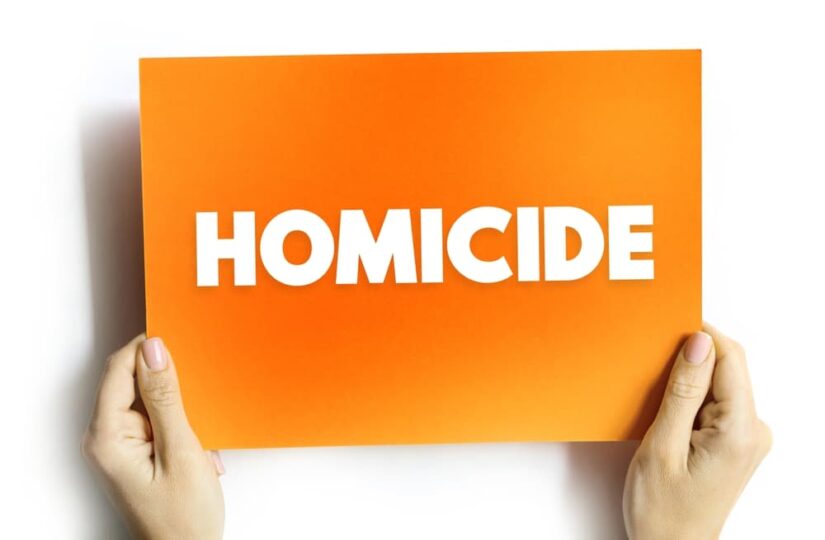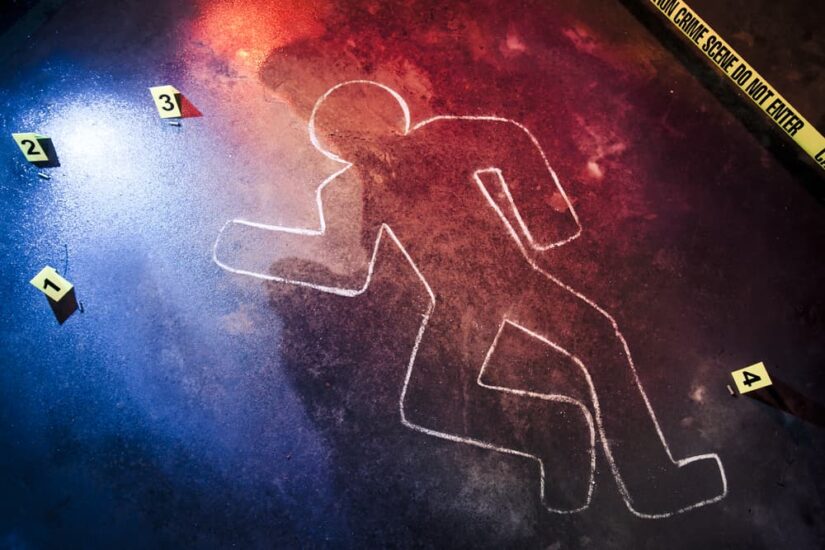Types of Homicide Charges and Their Definitions

Homicide is one human being killing another human being. This broad term covers a range of offenses, each with its definition, elements, and punishment. Knowing the different types of homicide charges is key if you’re facing such allegations. This article will overview different homicide charges and the role of a Homicide attorney in defending these crimes.
Request a Free Case Evaluation
What is Homicide?
As mentioned, a homicide, in legal terms, is one person killing another. But not all killings are crimes. For example, a killing qualifies as justifiable homicide if done in self-defense. Criminal homicide is the unlawful taking of a human life. So, homicide can range from unintentional killings (negligent) to intentional killings (premeditated).
First Degree Murder

First-degree murder is the most serious of homicide charges.
Definition
First-degree murder is the unlawful killing of a human being with malice aforethought, premeditation, and deliberation. In simple terms, the killing was planned and intended.
Elements
To prove first-degree murder, prosecutors must show the following elements:
- Unlawful Killing: A human being died as a result of the defendant’s actions.
- Intent: The defendant intended to kill the victim.
- Premeditation: The defendant planned the killing, even if only for a short time.
- Malice Aforethought: The defendant acted with ill will, hatred, or spite.
Punishment
First-degree murder carries the harshest punishment, often a life sentence or death.
Second Degree Murder
Second-degree murder is also an intentional killing but lacks the element of premeditation.
Definition
Second-degree murder is the unlawful killing of another person out of spite or vengeance without premeditation. In other words, the perpetrator intended to kill the victim but did not plan the murder.
Elements
To prove second-degree murder, prosecutors must show the following elements:
- Unlawful Killing: A human being died as a result of the defendant’s actions.
- Intent: The defendant intended to kill the victim or cause serious bodily harm.
- Malice Aforethought: The defendant acted with ill will, hatred, or spite.
Punishment
Second-degree murder carries severe punishments, including possible fines and prison time – from 10 years to life.
Manslaughter

Manslaughter is the unlawful killing of another person without malice aforethought. It’s divided into two categories: voluntary and involuntary.
Voluntary Manslaughter
Voluntary manslaughter is the unlawful killing of another person in the heat of passion or during a sudden quarrel. The charge becomes aggravated manslaughter if you take the life of a disabled adult, older person, or child.
Definition
Voluntary manslaughter refers to the intentional unlawful killing of a human being, but without premeditation or malice aforethought, committed in the heat of passion or on sudden provocation.
Elements
To prove voluntary manslaughter, prosecutors must show the following elements:
- Unlawful Killing: A human being died as a result of the defendant’s actions.
- Heat of Passion: The defendant acted under intense emotion, such as anger or fear.
- Sudden Provocation: The provocation was sufficient to cause a reasonable person to lose self-control.
- No Cooling-Off Period: The defendant did not have time to cool down between provocation and murder.
Involuntary Manslaughter
Involuntary manslaughter is the unlawful killing of another person unintentionally due to the defendant’s reckless or negligent actions.
Definition
Involuntary manslaughter is defined as the unlawful killing of a human being unintentionally during the commission of an illegal act or by criminal negligence.
Elements
To prove involuntary manslaughter, prosecutors must show the following elements:
- Unlawful Killing: A human being died as a result of the defendant’s actions.
- Recklessness or Negligence: The defendant acted with disregard for the safety of others or failed to exercise reasonable care.
- Causal Connection: The defendant’s actions directly caused the victim’s death.
Punishments for Voluntary and Involuntary Manslaughter
While the punishments for voluntary and involuntary manslaughter carry prison time, each state has established its specific punishments. For instance, in Florida, both crimes are considered second-degree felonies. Depending on the factors, a person may spend 15 years in prison and pay a fine of $10,000.
Vehicular Homicide
Vehicular homicide is the killing of another person through the operation of a motor vehicle recklessly or negligently.
Definition
Vehicular homicide refers to the unlawful killing of a human being caused by the reckless or negligent operation of a motor vehicle likely to cause death or serious bodily harm.
Elements
To prove vehicular homicide, prosecutors must show the following elements:
- Unlawful Killing: A human being died as a result of the defendant’s actions.
- Operation of a Motor Vehicle: The defendant was operating a motor vehicle.
- Recklessness or Negligence: The defendant operated the vehicle recklessly or negligently.
- Causal Connection: The defendant’s actions directly caused the victim’s death.
Punishment
Vehicular homicide carries fines, prison time, and the loss of driving privileges.
Criminal Defense Lawyer

Facing a homicide charge is a serious matter with life-changing consequences. A good criminal defense lawyer will protect your rights so you can achieve the best possible results in your case.
Investigation
A defense attorney will investigate the case, review police reports, interview witnesses, and gather evidence.
Legal Strategy
An experienced lawyer will develop a legal strategy based on the facts of the case and the law. This strategy may include challenging the prosecution’s evidence, arguing for a lesser charge, or defending self-defense.
Negotiation
A lawyer will negotiate with the prosecution for a good plea deal or reduced charges.
Trial Representation
If the case goes to trial, a defense lawyer will represent you in court, present evidence, cross-examine witnesses, and make legal arguments.
Protecting Your Rights
Again, a defense lawyer will protect your rights throughout the process, including your right to remain silent, your right to counsel, and your right to a fair trial.
Mitigation
A lawyer will present mitigating factors, such as a lack of prior criminal history, evidence, or remorse.
Better Outcome
A criminal defense lawyer can provide strong legal representation and secure a better outcome in your case, whether through dismissal of charges, a reduced sentence, or acquittal.
Talk to a Homicide Defense Lawyer About Your Case Today
Understanding the different types of homicide charges and the role of a criminal defense attorney is essential for anyone facing accusations of this type.
Each type of homicide has its own legal definition, elements, and potential penalties. A reputable criminal defense law firm in Miami, FL can provide invaluable assistance in explaining the details of the legal system and protecting your rights. Schedule a consultation today.
